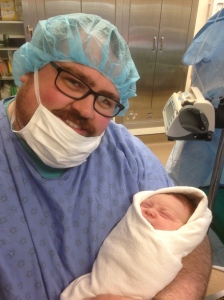 I am not sure I should even be writing this. I have written about women and inequality, especially as it relates to Christianity. But these past few days have felt different somehow.
I am not sure I should even be writing this. I have written about women and inequality, especially as it relates to Christianity. But these past few days have felt different somehow.
Unless you have been under a rock, you will have heard of the twitter hashtag #YesAllWomen. It was begun in response to Elliot Rodger’s killing spree, because he was feeling unfairly rejected by women.
Even a 30 second glance at the hashtag gives insight into the issues that all women face, on a daily basis, because of misogyny and patriarchy. If you haven’t done so, go to twitter and scroll through the hashtag by clicking here.
#YesAllWomen is primarily about women speaking to their experience. Unfortunately, too many men have gotten defensive about it and have responded with #NotAllMen. Defensiveness, or worse misogynistic trolling masked as defensiveness, just doesn’t help. The men who are loudly declaring that they aren’t the ones treating women badly have missed the point. No, not all men are rapists, cat-callers, abusers, misogynist or sexist. But all women suffer because of the men who are.
 I have been hesitant to write, because I have been worried about co-opting, as a white male, the issue of a marginalized group and making it about me. After reading articles and many tweets, I realize that I do have something to say because misogyny is about me. No, I am not the one victimized directly by it, but I suffer along with all women AND all men because it exists.
I have been hesitant to write, because I have been worried about co-opting, as a white male, the issue of a marginalized group and making it about me. After reading articles and many tweets, I realize that I do have something to say because misogyny is about me. No, I am not the one victimized directly by it, but I suffer along with all women AND all men because it exists.
Perhaps more importantly, #YesAllWomen has taught me several lessons in these past days, lessons that I think are worth sharing. I hope they can benefit you too:
1. #YesAllWomen has shown me that the women in my life all suffer silently from misogyny. My wife, my mother, my sister, my friends, they have all been the victims of the entitled attitudes of men and they have not told me because getting a man they care about angry at another man seems not worth the effort. Especially not worth it when there are so many misogynists out there. Just trying to move past these experiences as quickly as possible feels like the best way to survive.
2. #YesAllWomen has made it clear to me, as a new father to a son, that he is the most important person to teach about misogyny and patriarchy. It is a sad reality that we have to teach our daughters to protect themselves from men, even sadder that we don’t teach our sons not be a danger to women. Each boy that grows into a man that we teach to work fight for, and not against, the women in their lives is so important. Lets teach our sons not to abuse, oppress or feel entitled towards women, at least as much as we teach our daughters to avoid these experiences.
3. #YesAllWomen shows just how blind men are to their behaviour. The fact that #NotAllMen exists shows just how much we suck at “getting it” as a gender. As of this writing, there is no one tweeting under #OnlySomeWomen, yet there are many men defending themselves with #NotAllMen. This only shows how far we have to go to get it.
4. #YesAllWomen has taught me that people will defend their privilege in disgusting ways. As a pastor, I have seen many privileged groups try to defend their position in all kinds of circumstances. Invariably, defending one’s privileged position never has good reasons. There are never justifiable reasons as to why I should automatically get more, be more respected and have more power than others. So to defend privilege, people resort to shame, ad hominem attacks, victim blaming, playing the victim card, verbal abuse, mind games, emotional manipulation, bullying and all sorts of absurd behaviour. It is all there is to defend privilege. And men have been doing it all in response to #YesAllWomen.
5. #YesAllWomen is for women to speak and for men to hear – a reversal of roles. Most men, myself included, are not used to others having a voice more prominent and more important than ours. We are not used to being talked over, interrupted or lectured (mansplained) to. We are not used to being called out and justifiably shamed. It is role reversal for us to listen and for women to have the megaphone. And it is time to hand it over.
6. #YesAllWomen is not about men solving the problem of misogyny. It makes me so angry to hear about people treating the women in my life badly, especially other men. My instinct is to hop on my white stallion and chop some legs off with my viking battle-axe. This is not realistic, of course. But neither would it help for men to resolve all conflicts for women. This only teaches those who behave badly, that as long as man is not around, they can continue behaving badly and that women aren’t meant to be taken seriously. Again and again, as I hear about people acting badly towards women, it is best to be an example of a man that treats women equally and with respect.
7. #YesAllWomen reminds me that I cannot help but take advantage of my privilege. As a man, I can basically go anywhere at anytime of day or night and feel safe. I can call people to task for their bad behaviour and a good deal of the time they change it. I can speak without being interrupted and know that my words are taken seriously. I carry an innate sense of authority, regardless of the actual position I have in a group. I know that my voice will always be heard and heeded. I also know that none of this will likely change in my lifetime. And deep down, I know that there is room for everyone to experience the world this way. More people living in a world of respect and equality, won’t mean I have less. Yet, so many of those (men) in the privileged position want to maintain their status, and keep the privilege to a few. This is because more respect for everyone feels like less privilege for me.
8. #YesAllWomen has taught me the absurdity of gender roles. Every time some person, some article, some meme, some thing tries to say, “Men are like this, Women are like that” it contributes to patriarchy and gender inequality. We can all sense the racism when someone says, “Black people are like this, white people like that” or the religious intolerance of “Christians are like this, Muslims/Jews/Hindus/Atheists are like that” or the arrogance of “university grads are like this, high school dropouts are like that”. Yet when we hear “Men are like this, women like that” so many of us knowingly nod along and smile. Knowingly nod and smile like many in my grandparents generation would have at racist jokes! As long as there is a gender imbalance we need to recognize that saying “Men are like this, women like that” really means “This quality that Men supposedly carry is preferred, and that quality that women supposedly carry is inferior.” We all should know that characterizing people in such broad strokes reduces our beautiful diversity to broken categories
9. #YesAllWomen has taught me that understanding this issue requires empathy. The difference between sympathy and empathy is this: Sympathy is feeling what someone else feels, empathy is understanding what someone else feels. Sympathy can be helpful when someone is happy or sad, joyful or grieving. But as someone who looks more like a victimizer tries to sympathize with a victim, it is patronizing and unhelpful. Empathy is hard. Empathy requires getting away from my feelings, away from my context, away from my experience and looking out of someone else’s window. Seeing and understanding what they are feeling, what their life is like, what they are experiencing. Like I said, Empathy is hard, but men need to learn it. All of us do.
10. #YesAllWomen has taught me what my role is in supporting the empowerment of women and ending misogyny. I should have made the connection sooner, as it is my job as a preacher. As a pastor I point to God, I name what God is doing in the world. That means pointing away from myself, that means getting out of the way. As a man who is a feminist, who supports gender equality it is my role to support by pointing to women. By lifting up their voices and by getting myself out of the way.
So these are the lessons I have learned. Now I am going to get out of the way. Go read #YesAllWomen on Twitter. Find the articles by women about how misogyny and patriarchy and sexism and sexual violence and abuse affects them. Read. Think. Be changed like I have been.
How has #YesAllWomen affected you? What is your experience? Share in the comments, on Facebook at The Millennial Pastor Page or on Twitter: @ParkerErik
Special Thanks to my wife, Courtenay, who worked through these thoughts with me and is my brilliant editor. You can follow her on Twitter: @ReedmanParker



















